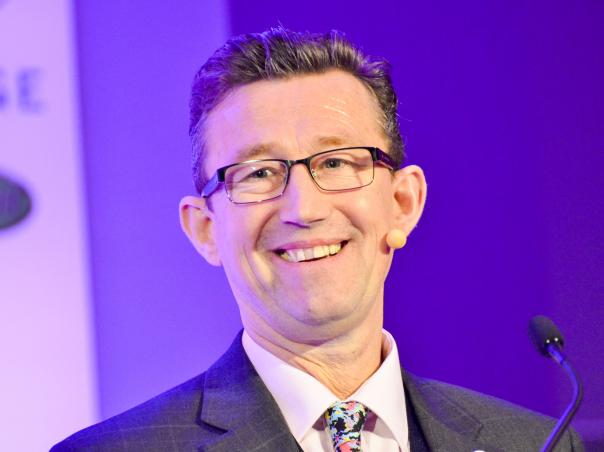
Simon Stevens, chief executive of the NHS, told the NHS to ‘put its own house in order’ earlier this month at the NHS Innovation Expo and ordered national action by NHS England and Public Health England (PHE) to challenge and support catering contractors and PFI providers to raise the standards of food and nutrition in hospitals, as part of a three pillar initiative.
Phil Shelley, national chair of the HCA, said: “Many of the areas of concern that are being raised as Stevens outlines his push to help NHS workers get healthier may be beyond our control as NHS caterers, but it is important that we are involved in the decision making process, and specifically around the food we produce.
“I know of hospitals in parts of the UK that are spending between £10 to £12 per head. Every patient should get the same high quality care and choice, but there is massive overspending going on and it’s unfair to the hospitals whose food and drink budgets are being cut."
Shelley believes that NHS kitchens supporting retail outlets should be run as professional enterprises and that hospital kitchens need to take a commercial approach operating a sensible profit and loss system.
He questioned why an approach similar to that of school meals, which cost the same across the board, can not be applied to hospital food. NHS benchmarking data shows the mean cost of patient food per day is currently £8.97 with the lowest value at £3.
Shelley is also facilities manager at Musgrove Park Hospital in Taunton. That hospital spends £3.60 per head, which he believes is sustainable, but to save money he says other Trusts are serving soup and sandwiches for supper instead of a hot meal.
Shelley said: “This may work for the Trust financially, but feeding patients is a complex process. One size does not fit all because we're dealing with an increasing number of patients who require special diets and nutritional support, so sandwiches are not suitable for a good number of them."
He claims that using seasonal produce can reduce costs and working closely with patients on the preferred timing of the main meal and on what snacks they enjoy, caterers can gain a better understanding of the patients’ needs while also reducing wastage.
Shelley added: “We must find a way within our own environment to be part of the clinical decision making around food and nutrition. We are proud to be part of the NHS, delivering a vital service to patients and Trust staff.
“And as part of the NHS we must continually raise the bar with our standards and provide good value for money, but we need the opportunity and the tools to provide a service that is exemplary and compassionate. To do that in part, a minimum spend per patient per day, is essential.
"We're urging our Members to buy differently, think about opening hours and pressures of pay. We have a captive audience within our hospitals. Our purchasing choices are wider than ever wherever we live, so why shouldn’t patients, staff and visitors also have a choice within their place of work?
“Hospitals and Trusts have made regular decisions to outsource food production where they see a bigger benefit, using the knowledge of the retail sector to maximise financial investment. But this must not be to the detriment of our customers. Nutritious, cost effective and consistent choices need to be available in our Trusts/Hospitals on a 7-day cycle which can often link in positively with the staff/visitor restaurants that are managed in-house.”
NHS chief Stevens also launched a major push to improve the health and wellbeing of NHS staff, calling for healthy foods to be offered in hospital restaurants, cafés and vending machines, and giving access to exercise classes.
Stevens said: “NHS staff have some of the most critical but demanding jobs in the country. When it comes to supporting the health of our own workforce, frankly the NHS needs to put its own house in order.
“Equally, its time for PFI contractors and catering firms to ‘smell the coffee’ - ditch junk food from hospitals and serve up affordable and healthy options instead. Staff, patients and visitors alike will all benefit.”
Shelley added: “Healthy eating for our staff is widely publicised; we have healthy choices in our vending machines, we utilise seasonal menus, and are encouraging our members to include the calorific intake, and we run special theme days to recognise the balance in other national menus, accompanied by salad bars and healthy eating sandwiches. All of which adds to the feel good factor within our workplace, which many of our members report is a welcome achievement. Our patients' health and well-being are at the centre of why the HCA exists and thrives."
The HCA is also focussing on the ward end service in an area they refer to as the ‘Last 9 Yards’. The HCA-led initiative call for the caterer to take control of the patients’ food and nutrition from admittance through to discharge, and in some cases, beyond.
Shelley concluded: "We're urging our Members to support the up skill training of our service teams to get them to the appropriate professional levels. This reinforces the core values of the NHS, working with care and compassion – striving to be 'the best'. And realising how 'together we can make a difference', underlining the value and benefits of the power of sharing.
"If we are to plan for long term success, our outlets need to be profitable, providing varied foods and beverages meeting the needs of both the patients and staff. We know what we need to do, we now just need the Government to play its part."